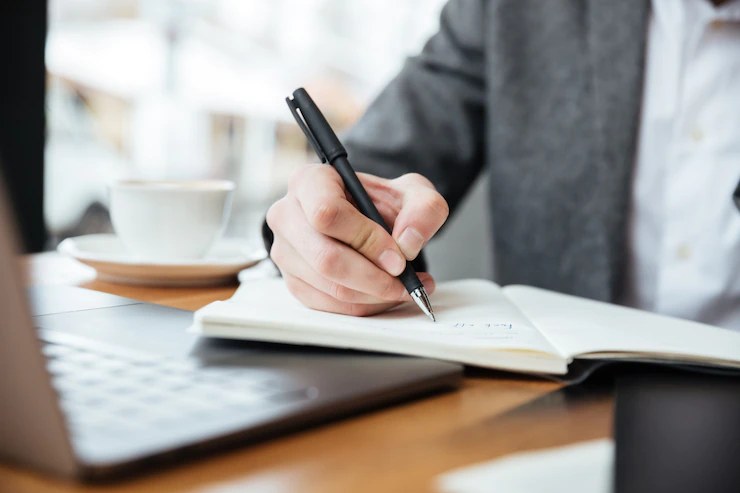
When to Send a Thank You Letter After Interview?
Expressing Gratitude After Interviews
Job hunting can be challenging and nerve-wracking. After completing a job interview, you might wonder how to follow up and express your appreciation to the interviewer for the opportunity. This is where the thank you letter comes into play – a powerful tool to showcase your professionalism, gratitude, and interest in the position. This article will delve into the significance of thank you letters, when and how to send them, and some tips for creating a remarkable thank you letter that leaves a lasting impression.
What is a Thank You Letter?
A thank-you letter, also known as a thank-you note or a letter of thanks, is a courteous and formal expression of gratitude sent to an employer or interviewer after a job interview. This letter serves as an opportunity for the interviewee to show appreciation for the interviewer's time and consideration, as well as to reiterate their interest in the position and highlight key points discussed during the interview. A well-crafted thank-you letter can set you apart from other candidates and reinforce your candidacy.
How Long Should You Wait Before Sending a Thank You Letter After an Interview?
The timing of sending a thank you letter is crucial. It's best to send it within 24 to 48 hours after the interview. Doing so ensures that your conversation remains fresh in the interviewer's mind, demonstrating your promptness and professionalism. A delay in sending the thank you letter might make it seem like an afterthought or indicate a lack of enthusiasm for the position.
Why Do You Need to Send a Thank You Letter?
Sending a thank you letter serves multiple purposes and can significantly impact your chances of getting the job. Here are some compelling reasons why you should send a thank you letter after an interview:
Gratitude and Courtesy
A thank you letter shows your appreciation for the interviewer's time and effort. It reflects your polite and respectful demeanor, essential qualities for any potential employee.
Reinforce Your Interest
The thank you letter allows you to reiterate your interest in the position and the company. You can highlight specific interview aspects that excited you about the opportunity.
Remind the Interviewer of Your Strengths
In your thank you letter, you can reinforce the key skills, qualifications, and experiences that make you an ideal fit for the role. This reinforces the positive impression you made during the interview.
Differentiation
Sending a thank you letter is not always common among candidates. By taking this extra step, you stand out as someone who goes the extra mile and is genuinely interested in the job.

When to Send a Thank You Email After an Interview
- Within 24 Hours. The general rule of thumb is to send a thank you email within 24 hours after the interview. This timeframe balances promptness and gives the interviewer enough time to process other candidates' interviews.
- Same Day. If you can send the thank you email on the same day as the interview, it demonstrates your eagerness and attention to detail. However, please don't rush the email; it is more important to ensure it is well-written and thoughtful.
- Before the Decision-Making Process. Ideally, you should send a thank you email before hiring. This way, it has a better chance of influencing the interviewer's impression of you.
Tips for Creating a Good Thank You Letter
Crafting an effective thank-you letter requires careful thought and attention to detail. Follow these tips to create a compelling thank-you letter that leaves a lasting impact:
Be Prompt
As mentioned earlier, sending the thank you letter within 24 to 48 hours is essential to show appreciation while the interview memory is fresh.
Personalize Your Letter
Address the interviewer by their name and mention specific details from the interview, such as discussing a project, challenge, or topic that stood out during the conversation. This shows that you were actively engaged during the interview.
Express Genuine Gratitude
Be sincere in your expression of gratitude. Mention the value of the opportunity and your enthusiasm for the position and the company.
Reiterate Your Key Qualifications
Remind the interviewer of your qualifications and how they align with the job requirements. Emphasize your strengths and how you can contribute to the company's success.
Keep It Concise
A thank you letter should be concise and to the point. Avoid unnecessary jargon or long-winded explanations.
Proofread Carefully
Spelling and grammatical errors can detract from the professionalism of your letter. Proofread it thoroughly before sending it.
Following Up After Sending the Thank-You Email/Letter
After sending your thank-you email or letter, be patient and allow time for the interviewer to review it. If you haven't received a response within a week, consider sending a brief follow-up email to express your continued interest in the position.
Key Conclusions
A thank you letter after a job interview can significantly enhance your chances of landing the position. By expressing gratitude, reiterating your interest, and highlighting your strengths, you demonstrate your professionalism and genuine enthusiasm for the role. Remember to send the thank you letter promptly, within 24 to 48 hours, to make the most significant impact.
Frequently Asked Questions and Answers
Q1. Which Email Address Should I Use?
When sending a thank you letter after an interview, use the email address you used for the application or the one you provided during the interview process. This ensures consistency and makes recognizing your name easier for the interviewer.
Q2. Should I Send a Thank-You Letter After Each Interview Round?
Yes, sending a thank you letter after each interview round is considered good practice. If you've had multiple interviews with different individuals or panels, customize each letter to address specific points discussed in each round.
Q3. After What Time Should I Send a Letter of Thanks?
As mentioned earlier, sending the thank you letter within 24 to 48 hours after the interview is best. This timeframe strikes a balance between showing promptness and giving yourself enough time to craft a thoughtful letter.
Conclusion
The thank you letter is a powerful tool in your job-seeking arsenal. By sending a well-timed, personalized, and sincere thank you letter after an interview, you can leave a positive and lasting impression on the interviewer, increasing your chances of landing your dream job. So, don't forget to say "thank you" after your next interview!
Related articles:
-
Tips for Great Job Interviews
-
Tricks to help you pass any interview
-
How to Address a Cover Letter for Interviews?
-
How to Write a Great Resume and Win the Interview
-
How to Write a Killer Marketing Resume?
-
Tips to Ace Behavioral Interview
-
Three Questions to Ask the HR Manager Before an Interview
-
Tips for Great Job Interviews
-
How the Job interview will Change after Quarantine
-
Objective Statements: Are They Now Outdated?
-
Resume with no experience
-
Seven Tips for the Perfect Resume Photo
-
How to Present Skills and Competencies in Resumes?
-
The Most Common Resume Mistakes to Avoid
-
The Specifics of a Career Change Resume
-
Top 10 Things Recruiters Look for in Resumes
-
Update Your Resume after a Long Career Break